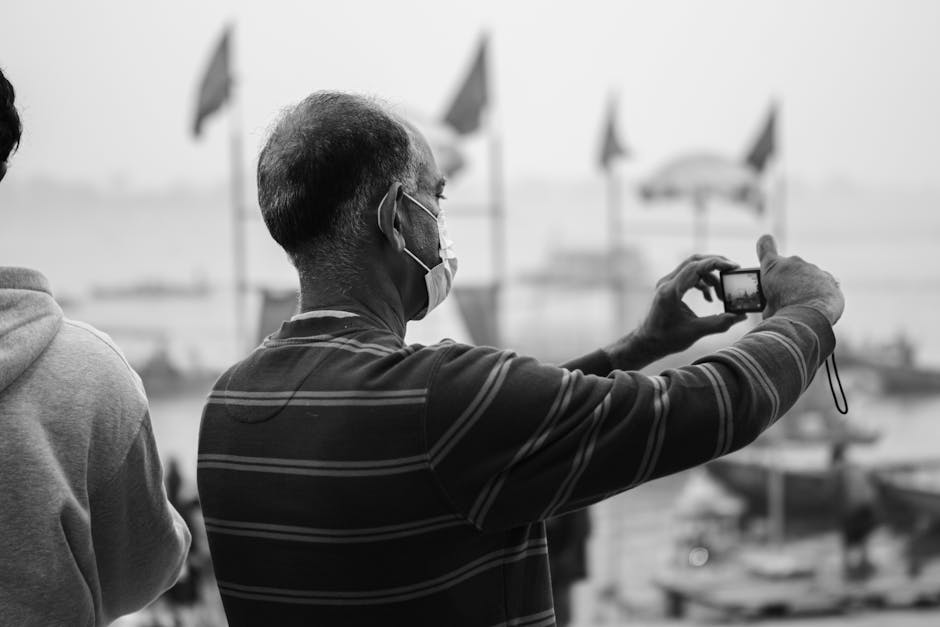The global travel and tourism industry, a vibrant tapestry of experiences, has traditionally catered to a specific demographic. While this sector has grown exponentially, questions remain about its true inclusivity. Can travel, with its inherent allure and potential for transformative journeys, be a more accessible experience for a wider range of individuals? The answer lies in a multifaceted approach that acknowledges the diverse needs and preferences of travellers, from the physically challenged to the budget-conscious.
A significant hurdle in making travel more accessible is financial constraint. A globalized economy, while offering unparalleled opportunities, often results in prohibitive costs associated with flights, accommodation, and activities. This barrier disproportionately impacts individuals from lower socioeconomic backgrounds, limiting their access to the transformative power of travel. Innovative solutions are necessary to democratize travel experiences. For instance, affordable accommodation options, such as hostels and homestays, can provide comfortable and budget-friendly lodgings. Similarly, airlines can implement more flexible pricing models, leveraging technologies like dynamic pricing that adapts to market fluctuations, to lessen the financial burden for individuals and families. Furthermore, travel agencies could offer curated packages emphasizing affordability, allowing travellers to tailor their journeys to specific budgets. This means shifting from a solely luxury-focused model to one that embraces variety and affordability, ensuring a range of experiences available to everyone.
Beyond finances, accessibility concerns encompass physical limitations. While many destinations have made strides towards incorporating ramps, elevators, and accessible restrooms, a substantial gap persists. This often necessitates significant upfront investment for businesses, deterring some from taking the plunge. However, governments and tourism boards can play a vital role by implementing clear standards and guidelines for accessibility. Such regulations should not just focus on physical infrastructure but also extend to providing readily available information about accessible routes, accommodations, and attractions. Moreover, training tourism professionals to understand and cater to diverse needs is paramount. This education should equip them with the necessary skills to ensure a seamless and supportive travel experience for all individuals.
Accessibility isn’t solely about physical limitations. Cultural sensitivities and inclusivity extend to diverse communities, religions, and personal preferences. A genuine commitment to creating an inclusive travel experience involves understanding and respecting different backgrounds. Tourism companies need to be mindful of cultural norms and practices of the locations they operate in, avoiding stereotypes and fostering an atmosphere of understanding and respect. This goes beyond simply providing information; it involves educating travellers about the unique customs and traditions of the destinations they visit. Moreover, the inclusion of diverse narratives in marketing materials and travel guides is crucial, depicting a more authentic representation of various communities and cultures.
Technology plays a powerful role in broadening accessibility. Apps designed for navigation, translation, and accessibility features can enhance the journey for individuals with disabilities or those seeking independent travel. Accessible accommodation options can be readily searched using dedicated filters on online travel platforms, making the process significantly easier for individuals. Further, these technologies can aid in creating real-time support for travellers experiencing unforeseen challenges during their trips. Such innovations can streamline the booking process and allow travellers to access necessary services swiftly and efficiently.
The realm of travel also needs to encompass emotional and psychological accessibility. Experiences and environments can evoke various reactions, including feelings of stress or isolation for vulnerable individuals. For example, solo travellers might benefit from curated itineraries specifically designed for solo exploration, fostering a sense of community and safety. Similarly, travel agencies can play a role in guiding individuals towards appropriate support resources if anxieties arise during their travels. The psychological well-being of the traveller should be given equal consideration to physical aspects.
Ethical travel, a vital component, should not be overlooked. Respectful interactions with local communities, responsible tourism practices, and mindful consumption are critical aspects of an accessible travel experience. Eco-conscious travellers should be encouraged to prioritize sustainability. Furthermore, promoting local businesses and supporting local economies through mindful travel choices contributes to a more sustainable and equitable tourism sector.
Finally, government regulations, tourism associations, and individual companies must collaborate to build an accessible travel ecosystem. Clear standards and regulations pertaining to accessibility, training programs for tourism personnel, and readily available information about accessible options should be implemented. This collaborative effort ensures a collective commitment towards inclusivity, allowing travellers of all backgrounds to partake in the joy and exploration travel offers.
The future of travel lies in its ability to transcend traditional boundaries, catering to the unique needs of every traveller. This involves not only addressing the practical concerns of accessibility but also fostering a genuine sense of inclusivity and understanding. By prioritizing inclusivity, equity, and sustainability, the travel and tourism industry can create experiences that are not only accessible but also enriching and transformative for all who journey. The journey towards truly inclusive travel is an ongoing one, but with collective effort, we can undoubtedly make travel a more accessible and enriching experience for everyone.
